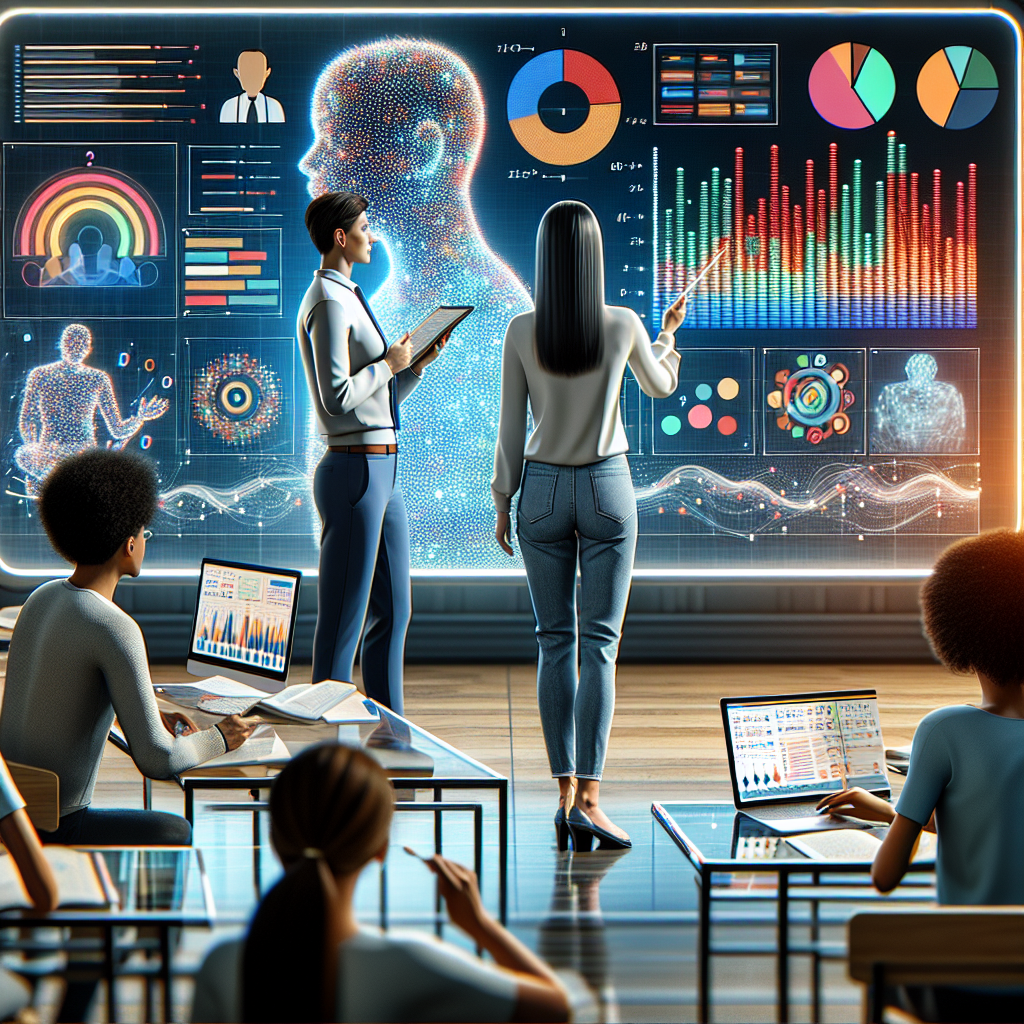In recent years, artificial intelligence (AI) has made significant advancements in various fields, including education. One of the key areas where AI is being leveraged is in providing real-time feedback and coaching for educators. This technology has the potential to revolutionize the way teachers receive support and improve their teaching practices.
Real-time feedback and coaching are essential for educators to continuously improve their teaching skills and effectiveness in the classroom. Traditionally, feedback and coaching for teachers have been limited to periodic evaluations and observations by school administrators or peers. However, these methods are often time-consuming, subjective, and may not provide timely and actionable insights for teachers to make immediate improvements.
AI-powered tools can address these limitations by providing continuous and personalized feedback to educators based on data collected during their teaching sessions. These tools can analyze a teacher’s interactions with students, classroom management techniques, and student engagement levels in real-time, allowing for immediate feedback and recommendations for improvement.
One example of AI-powered feedback and coaching tool for educators is the TeachBoost platform. This platform uses AI algorithms to analyze video recordings of teachers in the classroom and provide feedback on their teaching practices. The tool can identify areas where teachers may need improvement, such as classroom management, student engagement, or lesson delivery, and provide actionable recommendations to help them enhance their teaching skills.
Another example is the Edthena platform, which uses AI to analyze video recordings of classroom interactions between teachers and students. The platform can provide feedback on a teacher’s communication style, questioning techniques, and student responses, helping them to reflect on their teaching practices and make adjustments as needed.
By leveraging AI for real-time feedback and coaching, educators can benefit from personalized support that is tailored to their specific needs and areas for improvement. This can lead to more effective teaching practices, increased student engagement and achievement, and ultimately, a more positive learning environment for students.
FAQs:
Q: How does AI-powered feedback and coaching work for educators?
A: AI-powered feedback and coaching tools use algorithms to analyze data collected during teachers’ interactions with students in the classroom. This data can include video recordings, audio recordings, student responses, and other relevant information. The AI algorithms analyze this data in real-time to provide feedback on a teacher’s teaching practices, student engagement levels, and classroom management techniques. The feedback is then delivered to the teacher in a timely manner, allowing them to make immediate improvements to their teaching practices.
Q: What are the benefits of using AI for real-time feedback and coaching for educators?
A: There are several benefits to using AI for real-time feedback and coaching for educators. These include:
– Personalized support: AI-powered tools can provide personalized feedback and recommendations for educators based on their individual teaching styles and areas for improvement.
– Continuous improvement: Real-time feedback allows educators to make immediate adjustments to their teaching practices, leading to continuous improvement in their skills and effectiveness in the classroom.
– Increased student engagement: By receiving feedback on their teaching practices, educators can enhance their ability to engage students and create a more positive learning environment.
– Data-driven insights: AI-powered tools can provide data-driven insights into teachers’ interactions with students, helping them to identify areas for improvement and make evidence-based decisions about their teaching practices.
Q: Are there any limitations to using AI for real-time feedback and coaching for educators?
A: While AI-powered feedback and coaching tools offer many benefits, there are also some limitations to consider. These may include:
– Lack of human interaction: AI-powered tools may not be able to provide the same level of personalized support and feedback as a human coach or mentor.
– Privacy concerns: Using AI to analyze classroom interactions may raise privacy concerns among educators and students, particularly regarding the collection and storage of sensitive data.
– Cost: Implementing AI-powered feedback and coaching tools in schools may require a significant investment in technology and training for educators.
– Technical limitations: AI algorithms may not always be accurate in analyzing complex interactions in the classroom, leading to potential inaccuracies in the feedback provided.
In conclusion, leveraging AI for real-time feedback and coaching for educators has the potential to transform teaching practices and enhance student learning outcomes. By providing personalized support, continuous improvement, and data-driven insights, AI-powered tools can help educators to become more effective in the classroom and create a more positive learning environment for students. While there may be some limitations to consider, the benefits of using AI for real-time feedback and coaching far outweigh the challenges, making it a valuable tool for educators looking to improve their teaching practices.

